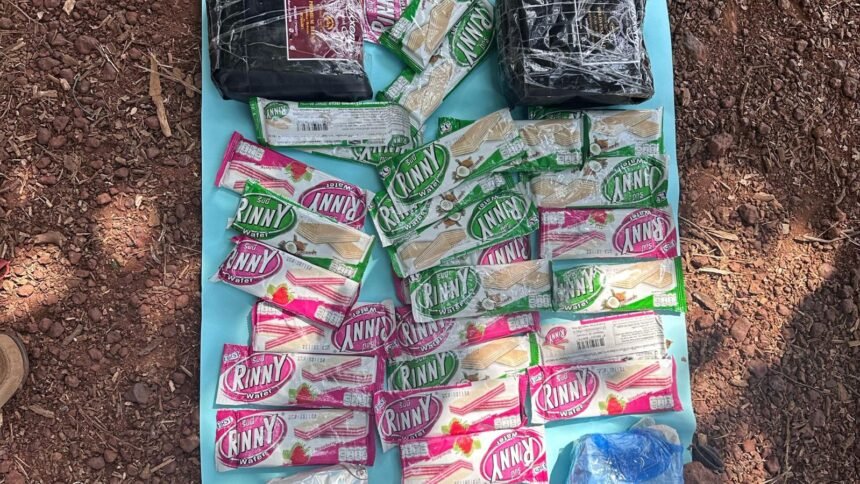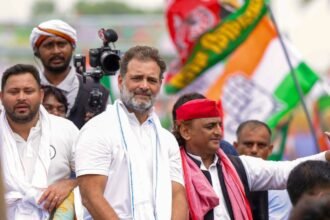The Enforcement Directorate’s Panaji zonal office initiated searches at multiple locations in Delhi, Maharashtra, Gujarat, West Bengal, Goa, Haryana, Jharkhand and Uttar Pradesh on Tuesday in connection with a drug trafficking and money laundering case.
The ED said a probe was initiated on the basis of an FIR registered by the Goa Police earlier this year. In April, the Crime Branch of the Goa Police arrested three people, Nibu Vincent, Manguesh Wadekar and Reshma, for allegedly smuggling 4.3 kg of cocaine from near a bus stand in South Goa’s Mormugao. The contraband was found concealed in 32 packets of wafers and coffee. At the time, police said it was one of the largest seizures in value terms and that the cocaine was suspected to have been smuggled from Thailand.
The ED said that during the investigation, it was found that a Zimbabwe national, Tariro Mangwana, was involved in laundering funds for Indian nationals as remuneration for acting as mules and that he had made arrangements for their travel and logistics.
“Out of eight such Indian nationals, four were arrested either in India or in foreign jurisdictions for involvement or possession of narcotics. Based on his involvement in an international organised drug syndicate and money laundering, Mangwana was arrested under the Prevention of Money Laundering Act (PMLA), 2002. The special court under PMLA at Goa has remanded the accused in ED custody for three days,” the ED said in a statement.
According to the ED, the search operation found the involvement of a “larger organised syndicate engaged in narcotics trafficking racketeering and laundering of proceeds of crime and narcotics across multiple states and even foreign jurisdictions.”
“PMLA investigation indicates strong evidence of international linkages and communication with networks outside India, suggesting that the cartel was not limited to Goa alone, but had cross-border contacts for both procurement and distribution. ED investigation has also revealed the use of shell entities and benami accounts for routing funds, thereby disguising the origin of the money earned through drug trafficking. The investigation revealed that certain foreign nationals were involved in procuring travel tickets and arranging logistics for Indian nationals to travel abroad for trafficking of narcotics,” the ED said.
The ED also said its teams seized multiple digital devices, electronic storage media and other incriminating documents, and froze multiple bank accounts that were used in money laundering activities.
Story continues below this ad
“The materials recovered contain vital evidence pointing towards the financial trail of drug trafficking proceeds, the use of layering techniques to conceal illicit funds and the involvement of secondary handlers and facilitators who acted as the second layer of the syndicate,” the ED said.








